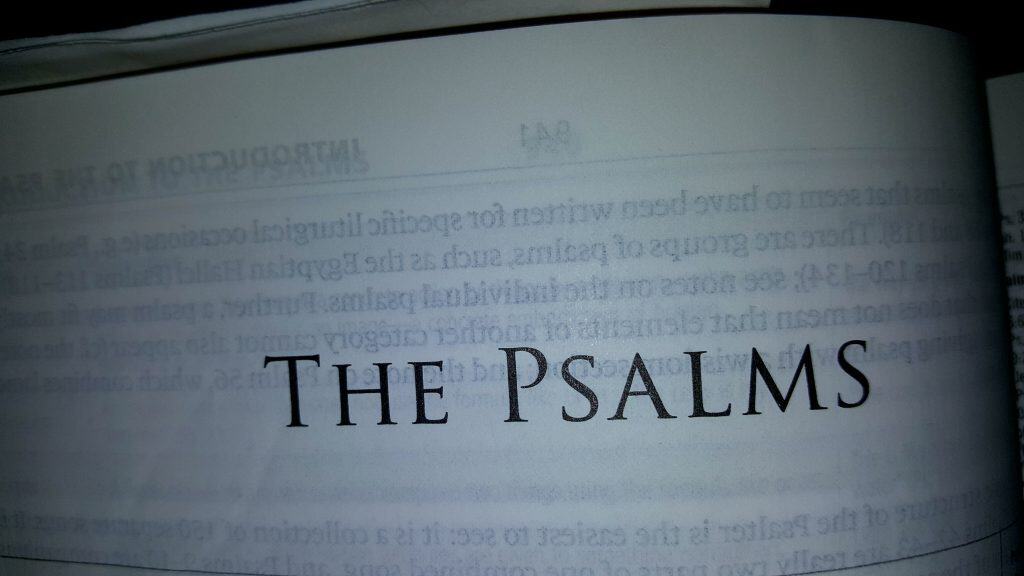⏱️ Estimated Reading Time: 7 min read
Discouragement is as common to the human experience as birth and death. Most of us experience a fair amount of happiness, pleasure, love, and hope; God is good to send sun and rain, food and clothing. But all of us know what it is to suffer loss, disappointment, and heartache. Some pains are temporary and relatively minor, others are lifelong and heart-stabbing.
How do we, how should we handle these inevitable seasons of discouragement that come into our lives? In Psalm 42, David models for us the way to battle our way out of pits of despair: “Why are you cast down, O my soul?” (5). And among the weapons in his arsenal is this perhaps-surprising confidence: “I shall again praise him, my salvation.” How can David be so certain that all this pain will result in his praising God and God delivering him? Well, it has to do with the nature of all pain, and with the nature of God.
I Am Panting After God
As we’ve already observed, we all experience pain in life; but the fact is many of us misdiagnose the source of our problem. We think we are wrestling with discouragement because we are grieving the loss of a loved one, or feeling the decline of our aging body, or disappointed by a missed opportunity, or… the list of sorrows is almost endless. But the psalmist helps us find the solution to discouragement by first accurately pointing out the problem.
David opens the Psalm with these words: “As a deer pants for flowing streams, so pants my soul for you, O God. My soul thirsts for God, for the living God. When shall I come and appear before God?” (1-2). David’s problem, and ours in every discouragement, is that he did not have enough of God—our faith is weaker than it ought to be, our sight of God is smaller than it should to be, our fellowship with God is not as close as it could be.
Is this an oversimplification? Or am I guilty of overstatement? No. David was facing very real pain, very deep sorrow. He writes in verse 3, “My tears have been my food day and night.” David had been eating his own tears for breakfast, lunch, and supper… for days. Perhaps the grief of his current circumstances had robbed him of his appetite; or maybe David is simply saying his tears had been so constant that he’d forgotten what it was not to taste their unsatisfying saltiness on his lips every day. Regardless, in the midst of all his heartache David says eating his own tears reminds him of the one thing for which he is truly longing: he is panting after God. He is thirsty for the living God in the midst of this dying world.
No matter the specific occasion of our discouragement—grieving over a child who has gone astray (as David was), or being reminded of our own mortality (as David was), or being treated unjustly (as David was)—our deepest problem, and therefore our deepest need, is that we do not have enough of God. I do not mean to imply that every time we are discouraged it is because of we are walking contrary to God, or harboring unrepentant sin; David wasn’t as he wrote this psalm. But the great curse of this world is that we are not able to walk in the daily, direct, discernable presence of God.
No matter how much we may try, how hard we might strive, there are times that we will not feel close to God; there are seasons in which we cannot discern the personal attention of God. But David is wise to correctly identify this as the source of his discouragement. Rather than thinking, “If only my circumstances were different,” or “If only my enemies were defeated,” David recognizes that what he needs—more than anything else—is more of God. If he has God, he has everything. God is just that big, that good, that wise, that sufficient. He is all we need, in every situation.
Are you discouraged? Then pant after God until you find him. Thirst after God until you are able, by grace, to drink deeply of him.
I Shall Praise Him Again
How, then, could David—in the throws of personal agony and loss—say with such confidence, “I am still going to praise God”? It is because David knew that, while not having enough of God was his ultimate problem, God himself was also the ultimate solution. David knew something, not just about the nature of every pain, but about the nature of God. God is not only big and good and wise and sufficient—God is also merciful, loving, pursuing, and promise-keeping.
This is why David goes on to write, “My soul is cast down within me; therefore I remember you…” (6). While David knew a lot about suffering, he also knew a lot about God and his gracious ways: “By day the LORD commands his steadfast love, and at night his song is with me, a prayer to the God of my life” (8). David knew that, even as he had been eating his own tears night and day in grief, God had been pursuing him night and day with love. In the same season in which David had been panting after God, God had been commanding love to pursue David relentlessly. While David’s enemies had been continually taunting him, saying, “Where is your God?”, David knew that his God had been continually present with him, even when he could not feel or see him. God is just that merciful, loving, pursuing, and promise-keeping.
What about you? Have you perhaps taken your eyes off, not only the ability of God to supply your every need, but the promise of God to actually do it? In the depths of your own discouragement, have you forgotten about the sufficiency and faithfulness of your God?
If so, turn your eyes to Jesus. God sent Jesus to live among us, to die in our place, and to rise for our justification. In the person and work of Jesus Christ, we see God’s ultimate proof to us of his own goodness, wisdom, and grace. In Jesus, God commanded his love to pursue us, day and night, for our good and his glory. Jesus is the song that God sings to us in the darkest nights that we will face in this world. Jesus is God’s promise that every tear will one day be wiped away, and that every reason for crying will be finally and fully removed.
His Presence Is Salvation
Recognizing the nature of his problem (that he needed more of God) and the nature of God (that God had commanded his love to continually pursue him), David confidently asserts, “I shall again praise him, my salvation and my God” (v.11). Notice that David’s salvation is: God! “You, God, are my salvation,” David says. God’s deliverance would not look like David’s circumstances improving, or every one of his enemies being killed, or all his losses being restored—God’s deliverance would look like God. God’s presence with me, David says, is salvation. I don’t need anything else. I have been panting after God; and so when I taste God’s goodness with me again, I will be satisfied. When I drink deeply again from the well of God’s glory, I will thirst no more.
If you are discouraged, know this: God is all you really need. And in Jesus Christ he has promised to go with you, to be with you, through every change and challenge of life. His presence is salvation. Trust in Him, run to Him, pant after Him until you drink deeply of Him.




